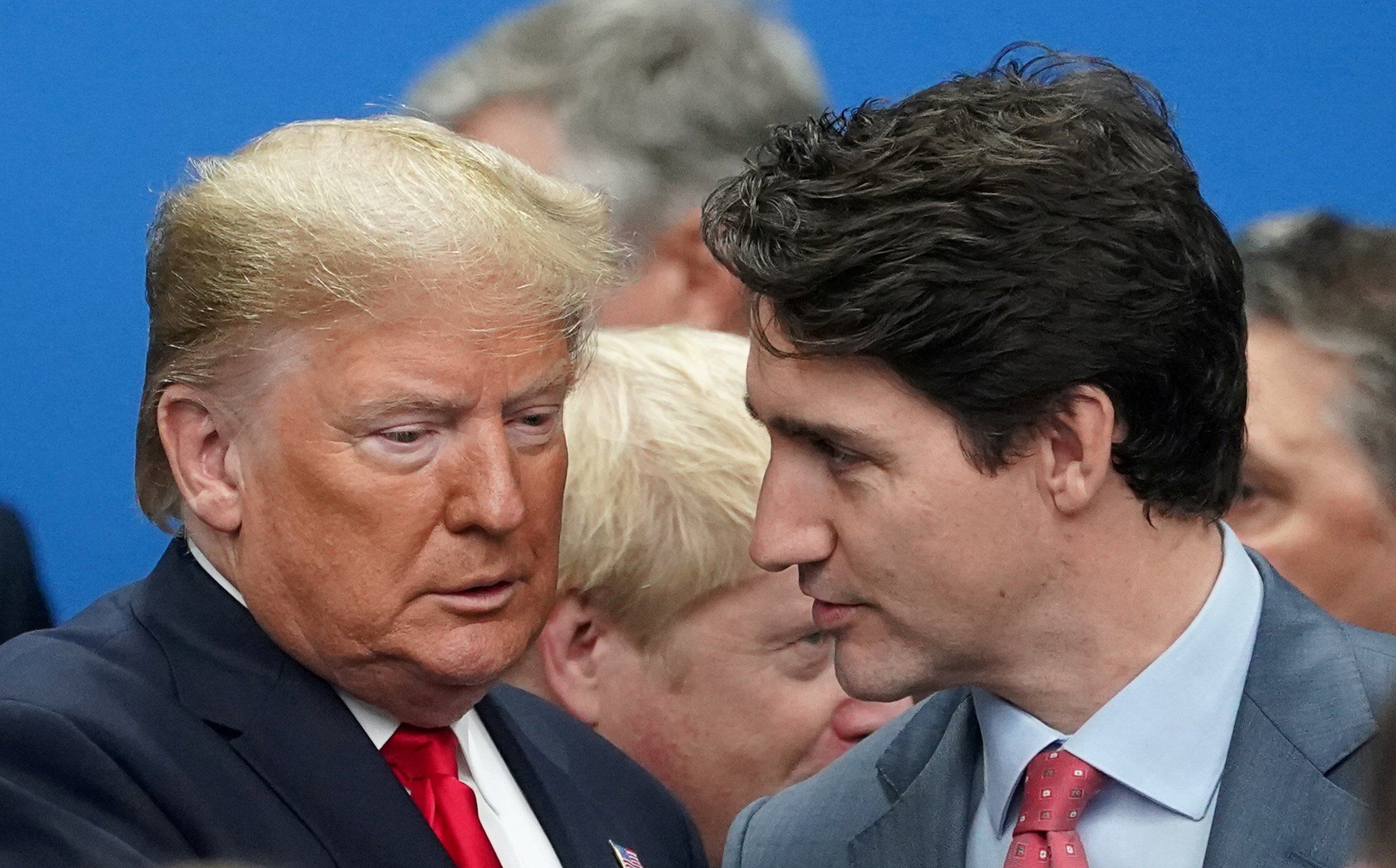Former U.S. President Donald Trump talks with Canada's Prime Minister Justin Trudeau during a North Atlantic Treaty Organization
REUTERS
Former President Donald Trump has been indicted for a third time on four counts, including conspiracy to defraud the US, with charges related to alleged attempts at overturning the 2020 election results. But this isn’t hurting Trump’s chances for securing the Republican nomination. His primary contenders, including former Vice President Mike Pence and Florida Gov. Ron DeSantis are struggling to gain traction against Trump, who is miles ahead of them. A new poll also has Trump neck and neck with President Joe Biden in a rematch of the 2020 presidential election.
Trump enjoyed a five-point advantage among Republicans who supported him over Democrats who support Biden – 88%to 83%. But Biden makes up the gap with independents, with 42% of them favoring him compared to 37% for Trump.
Canadians are watching with unease. The Trump years were difficult for Canada. The Trump administration forced a long and difficult negotiation of the North American Free Trade Agreement – now the U.S.-Mexico-Canada Agreement – and encouraged the flow of toxic extremist politics across the border.
PM Justin Trudeau, meanwhile, is facing his own election before the end of 2025. On Wednesday, news broke that he and his wife of 18 years, Sophie Grégoire Trudeau, were separating. It’s unlikely the separation will be over-politicized or have an effect on the election. To its credit, Canada has a history of leaving such private matters alone, with certain exceptions – including the 1977 separation of Trudeau’s father, then-prime minister Pierre Trudeau, and his mother Margaret Trudeau.